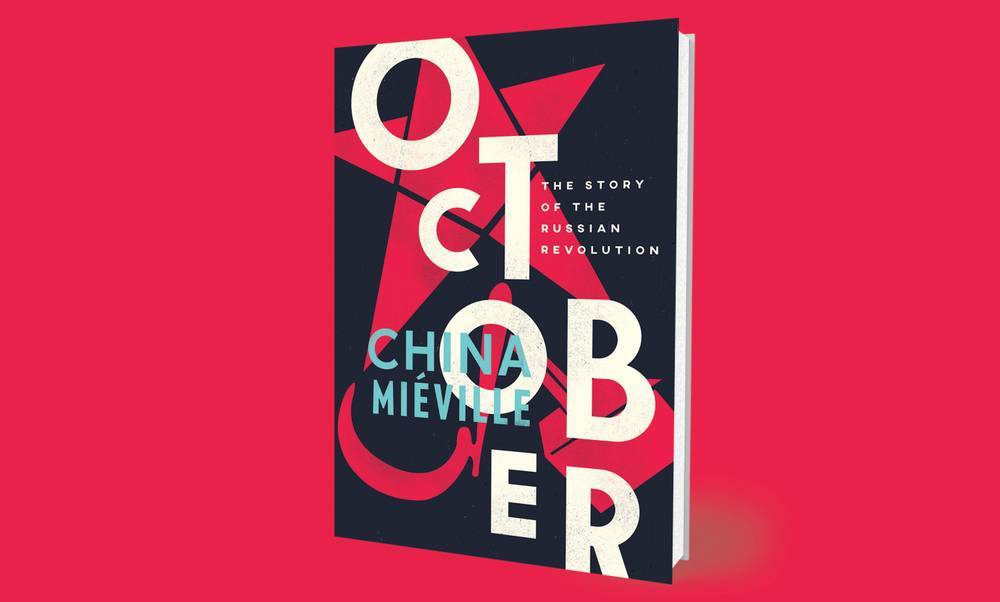At the Baffler website, Siddhartha Deb reviews sci-fi writer China Miéville’s recent book October, a narrative account of the 1917 Russian Revolution in all it’s messy and improbable glory. Deb praises Miéville’s book for highlighting not only heroic moments, but also the real-life drudgery and painstaking work that go into making a revolution. Read an excerpt from Deb’s review below, or the full piece here.
Miéville’s month-by-month account gives us the back and forth from that point on. There are countless strikes, of course, and barricades, and astonishingly colorful characters like the anarchist Shlema Asnin who “dressed like a gothic cowboy, wide-brimmed hats, guns and all,” the cleaning lady Ekaterina Alexeeva, who lets the Bolsheviks into the Duma building for a secret meeting, and Viktor Shklovsky, the great formalist critic, walking toward the front lines in Galicia as a Soviet army commissar.
None of this texture is surprising coming from Miéville, one of the edgiest and most political of writers working today. Protest and resistance has long animated his vast body of speculative fiction, works like Perdido Street Station, Iron Council, Railsea, and the recent, Surrealism-inspired The Last Days of New Paris that effortlessly demonstrate the overlapping of the utopian political imagination with its aesthetic counterpart. Here too, there are moments when October is a truly steampunkish history of the revolution, as for instance when Miéville writes, “The revolution of 1917 is a revolution of trains. . . .The tsar’s wheeled palace, shunted into sidings forever; Lenin’s sealed stateless carriage; Guchkov and Shulgin’s meandering abdication express; the trains criss-crossing Russia heavy with desperate deserters; the engine stoked by ‘Konstantin Ivanov,’ Lenin in his wig, eagerly shovelling coal.” Write this all over again as fiction, one wants to say to him, and please put in more of the art, the poetry, what the writer Anatoly Lunacharsky called the refashioning of the soul, and less of the endless meetings and committees and backstabbing and dithering.
But then, perhaps, Miéville wants us to know that a revolution is not only an act of the imagination. It involves meetings and minutes as much as guns and poetry, and cleaning up after the meetings is always a necessity. Still, its ultimate purpose is to make us think how astonishing it is that the Russian Revolution happened at all, in this place and not in the great powers of the era with their promises of modernity—Britain, France, Germany, the United States—this flowering of possibilities that provoked, in turn, the thoughts of upturning the imperial order everywhere else, in the West and East, in the North and in the Global South.
